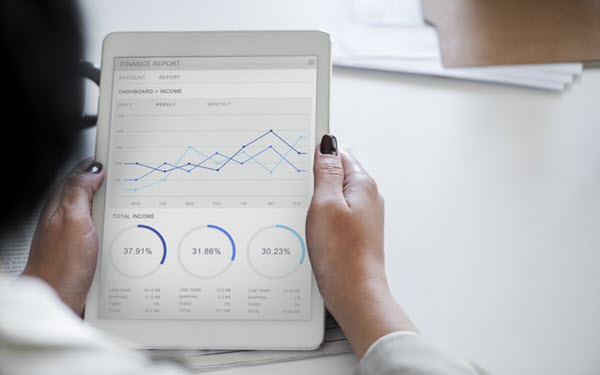Paperless Office: Myths, Benefits, and Tips for Going Paperless
By Amina Yepisheva
July 3, 2018 • Fact checked by Dumb Little Man

Operating in an eco-friendly manner has been the new black for some time now. However, being trendy is not the main benefit of going paperless in the office. It actually offers tons of advantages.
Top myths about paperless office
Even though the term paperless was first used in 1978, the amount of misconceptions that still surround it is quite surprising. Let’s get to debunking:
- Paper-free automatically means environmentally-friendly – It’s not that simple. If your go-to approach to becoming paperless is just to scan all documents and throw away the paper, you won’t do anything ecological. For starters, to be called eco-friendly, you’d have to at least recycle that paper.
- Being paper-free requires complete rejection of the paper – Of course, in the perfect world, you would say no to all the papers. In reality, however, a paper-free office is actually a concept of an organization striving to minimize the use of paper. That’s why complete rejection is not really necessary.
- Paperless office is less secure – That’s not true as well. Digital cloud services and paper-free tools protect your business data better than you might think. They usually utilize highly secure encryptions to protect your business data. Also, paper documents are not bulletproof, too. They can easily get spoiled or lost.
Why bother going paperless?

So, what are the benefits of the paper-free concept? Why did it become so popular? From our point of view, the advantages are clear and really impressive.
- It saves money. You won’t have to spend on printers, papers, toners, inks, shredders, and whatnot. According to the Environmental Protection Agency, going paperless can save a company about $80 for each of your staff members per year.
- It saves time. On average, it takes workers about 5 minutes to come to a filing cabinet, find the needed document, and then work on it. Multiply this by how often your workers need to find new docs and you’ll see how much of their time will be freed by going paperless.
- It improves business workflow. When all of your documents are in electronic form, collaboration with your partners becomes faster and easier. For instance, being able to sign papers digitally allows you to avoid the old-fashioned print-sign-scan-send routine. Instead, you can sign papers with a tap of a finger, speeding up your sales process. Also, the mere absence of paper and filing cabinets makes your workers more organized overall.
How to go paperless?
You might think that you are ready to make the transition, but it is important to understand that you can’t go paperless overnight.
Here are the best tips for going paperless.
- Choose a cloud storage for your business data if you still don’t have one. There are plenty of popular services out there, like Google, Microsoft or Dropbox. They have different amounts of available space and privacy policy rules, so be careful. Choose the one that suits your business best.
- Scan all your documents and transfer them to the chosen cloud storage. Considering the amount of paper in use by an average company, you probably won’t make it in one day. That’s why we suggest you to make a daily transfer plan and then process at least one filing cabinet a day.
- This step is important eco-friendly-wise. Now that you have all your documents in electronic form, you should get rid of the unnecessary papers. It is important that you recycle them. Normally, you can find a couple of recycling companies in most large cities, so this shouldn’t be that much of a trouble.
- Implement paper-free tools. For example, your company should consider using tablets instead of laptops and desktop PCs when possible so that employees could work effectively on the go. Tablets are also indispensable when working with clients when you have to fill in profiles and questionnaires or close deals in a matter of minutes. Another great paperless tool that facilitates client work is electronic signature services. It is a technology for electronically signing documents. It also allows you to remotely collaborate with stakeholders and sign your documents even on-the-go. Some of these services also provide additional features, like templates, offline mode, and secure storages.
- Go for electronic invoicing and billing. This includes paying your bills with online banking, especially since there are no legitimate reasons not to. Once you’re geared up with paper-free tools, you are ready to practice e-Invoicing, too. FYI, your savings from turning to electronic invoicing can reach up to $8 per invoice.
In conclusion
Going paperless is a multi-step and time-consuming process. However, the benefits are worth it. Be patient with these tips for going paperless and you’ll soon see the improvements in your office.
Amina Yepisheva
Amina is a writer at KeepSolid with a passion for learning and sharing experience with others. She has a vast knowledge of strategy, productivity, sales, internet privacy and security, writing about these topics for VPN Unlimited blog and KeepSolid blog.


